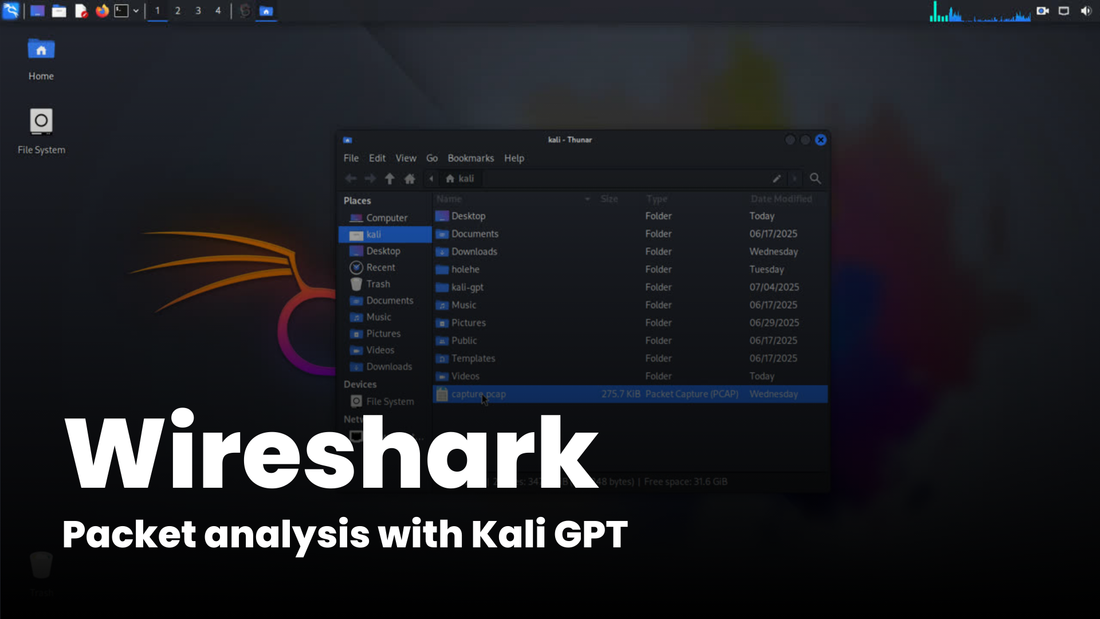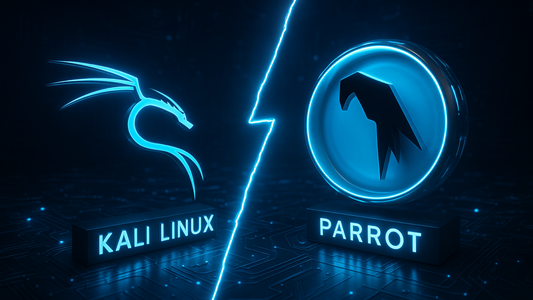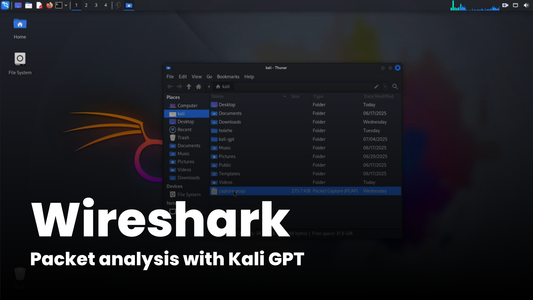
Save Time in Cyber Investigations with the Best AI Forensic Tool for PCAP Analysis
Share
Introduction
In today’s cybersecurity landscape, digital forensics has become an essential part of incident response. When a data breach or suspicious activity is detected, forensic analysts must act swiftly, examining logs, traffic captures, and system artifacts to understand what happened and how. Among the most common and valuable sources of evidence are PCAP (packet capture) files.
However, analyzing PCAP files manually is a time-consuming and error-prone process. Commands must be crafted with precision, and hours can be spent filtering traffic for specific events such as credential leakage or unauthorized data transfers.
To address these challenges, an AI forensic tool for PCAP analysis has been developed: Kali GPT. With this intelligent assistant, network forensics can now be performed faster, with fewer errors, and with enhanced clarity.
The Pain Points of Manual PCAP
Analysis Before looking into how Kali GPT simplifies forensics, it’s worth understanding the limitations that traditionally affect manual investigations:
- Complex filters must be written in tools like tshark, tcpdump, or Wireshark
- Large PCAP files can contain millions of packets, making it easy to miss key data
- Context switching between tools, scripts, and documentation slows analysts down
- Human error in interpreting results can delay response efforts
These limitations can have real consequences in the context of time-sensitive investigations, where malicious behavior must be confirmed or denied within hours—not days.
How Kali GPT Simplifies the Process
Kali GPT was designed to support cybersecurity professionals, penetration testers, and forensic investigators with AI-powered assistance. It integrates directly into Kali Linux and understands forensic workflows, terminal syntax, and packet-level analysis tools.
Here's how Kali GPT transforms PCAP analysis:
1. Natural Language Commands
Instead of searching online for tshark filters or syntax, users can simply ask:
"Extract all FTP credentials from this PCAP file."
Kali GPT interprets the request and automatically generates a tailored command.
2. Precise Command Generation
Whether you're working with tshark, tcpdump, or Wireshark CLI, Kali GPT produces accurate, context-aware commands based on your goal.
3. One-Click Execution
The generated command can be executed directly via the assistant. Within seconds, relevant packets are filtered and analyzed.
4. Clear and Actionable Results
Kali GPT highlights key findings, such as unencrypted usernames and passwords, in an easily readable format. This ensures results are not just fast, but also understandable and ready to use in reports.
Benefits for Incident Response Teams
By using an AI forensic tool for PCAP analysis, significant benefits are achieved:
⏱️ Time is saved on repetitive, manual command-line work
🔍 Results are more accurate, reducing the risk of oversight
📈 Productivity is improved, especially for junior analysts or fast-moving SOC teams
🤖 Tasks are automated, freeing up time for deeper investigation or documentation
🔐 Confidentiality is preserved, as analysis can be performed locally without cloud upload
Why AI-Powered Forensics Is the Future
Cyberattacks are becoming more complex and frequent. Security teams are under pressure to respond faster and more effectively. Tools like Kali GPT are paving the way for automated, intelligent forensics, where analysts focus on decision-making rather than low-level data parsing.
AI is not replacing the human analyst, it is empowering them. And for tasks like PCAP analysis, where accuracy and speed are critical, the combination of AI and proven forensic tools is a game changer.
For any cybersecurity team looking to modernize their workflow, Kali GPT is a must-have AI forensic tool for PCAP analysis. It blends natural language understanding with powerful command-line tools, delivering results in seconds that would otherwise take hours.



